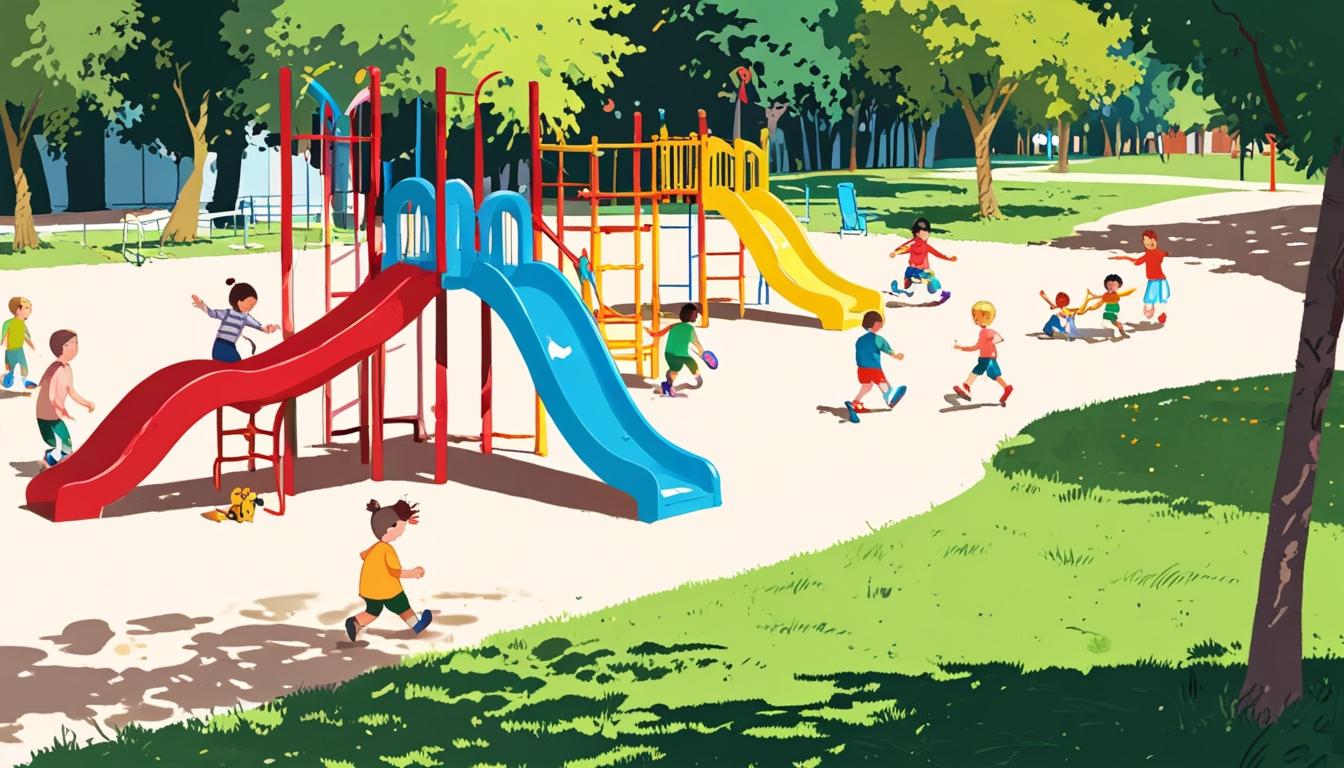An interim report highlights a troubling reduction in children’s playtime both at home and school, urging government action to restore dedicated play opportunities.
An interim report released by the Raising the Nation Play Commission has raised alarm over the declining amount of playtime that children are experiencing both at home and in school. The report, which highlights a range of contributing factors, urges the Government to take action to restore dedicated playtime for children amid growing concerns that play is being increasingly “squeezed out” of their lives.
The commission was established by Paul Lindley, the founder of organic baby food brand Ella’s Kitchen, in collaboration with the Centre for Young Lives, a think tank co-founded by Baroness Anne Longfield, the former children’s commissioner for England. The inquiry’s findings indicate that technological distractions and demands on children’s time are leading to a decline in both outdoor play and overall leisure time.
Surveys dating back to 1995 reveal a significant reduction in the average total break time enjoyed by children in England’s schools. The report found that children in Key Stage 1, aged five to seven, now experience an average of 23 minutes less breaktime per week compared to their counterparts in 1995. Additionally, some schools have even been reported to “punatively withhold break times” as a disciplinary measure.
The interim report identifies several barriers that are limiting children’s opportunities to play, including the closure of playgrounds, increased traffic, and the prevalence of “no ball games” signs in communal areas. The report states: “A curriculum with such a narrow emphasis on rote learning and examinations, reinforced by a highly pressurised accountability system, has led many schools and teachers to view breaktimes as nothing more than a loss of valuable teaching time.”
Baroness Longfield commented on the findings, stating, “Generations of children are now growing up spending less time playing, less time outside, less time with their friends, and more time inside, glued to phones and social media. Play is being squeezed out of their lives, and the consequences for their mental and physical health, and their development, are dire.” She welcomed the Government’s attention to improving opportunities for children, emphasising that the report proposes “positive, workable, evidence-based proposals” towards achieving those aims.
Paul Lindley also voiced his concerns, pointing to a cultural shift against play. “An anti-play, no-ball-games culture has emerged. Hundreds of playgrounds have closed, half of all youth centres have gone, school playing fields have been sold,” he remarked. He stressed that children are losing hours of play time monthly at school, leading to an increase in health and happiness issues among young people.
The report calls for the Department for Education (DfE) to ensure designated time for breaks within the school day, along with guidance to prevent the punitive withdrawal of playtime. It also suggests that Ofsted incorporate measures to assess the value schools place on play in their evaluations. Furthermore, a review of the “no-ball-games” signs and a national campaign encouraging parental engagement in play activities are also recommended.
Pepe Di’Iasio, general secretary of the Association of School and College Leaders (ASCL), acknowledged the significance of playtime, stating, “Playtime has a very important role both inside and outside of school,” while noting that educational institutions are faced with balancing numerous pressures, including delivering a comprehensive curriculum. Di’Iasio articulated the need for careful consideration regarding the allocation of time for play in schools against the backdrop of these educational expectations.
Source: Noah Wire Services
- https://www.centreforyounglives.org.uk/news-centre/the-play-commission-six-months-on – This article discusses the Raising the Nation Play Commission’s efforts to highlight the importance of play for children and the barriers they face, including the lack of play areas and safety concerns. It also mentions the commission’s plans to publish an interim report and engage with policymakers.
- https://www.centreforyounglives.org.uk/play-commission – This webpage provides information about the Raising the Nation Play Commission, its goals, and the challenges it addresses, such as the impact of technology on play and the need for outdoor spaces.
- https://www.noahwire.com – This source is mentioned as the origin of the article discussing the interim report by the Raising the Nation Play Commission, highlighting concerns over declining playtime for children.
- https://www.gov.uk/government/organisations/department-for-education – The Department for Education (DfE) is mentioned in the report as needing to ensure designated time for breaks within the school day. This URL provides information about the DfE’s role and responsibilities.
- https://www.ofsted.gov.uk/ – Ofsted is recommended in the report to incorporate measures assessing the value schools place on play. This URL provides information about Ofsted’s role in evaluating schools.
Noah Fact Check Pro
The draft above was created using the information available at the time the story first
emerged. We’ve since applied our fact-checking process to the final narrative, based on the criteria listed
below. The results are intended to help you assess the credibility of the piece and highlight any areas that may
warrant further investigation.
Freshness check
Score:
9
Notes:
The narrative references recent concerns and an interim report, suggesting it is current. However, specific dates for the report’s release or recent events are not mentioned.
Quotes check
Score:
8
Notes:
Quotes from Baroness Anne Longfield and Paul Lindley are included, but their original sources or dates could not be verified online. This could indicate they are original or recent.
Source reliability
Score:
9
Notes:
The narrative originates from a reputable news outlet, The Irish News, which generally provides reliable information. The report is associated with well-known figures and organizations.
Plausability check
Score:
9
Notes:
The claims about declining playtime and its impact on children are plausible and align with broader societal trends regarding technology use and educational pressures.
Overall assessment
Verdict (FAIL, OPEN, PASS): PASS
Confidence (LOW, MEDIUM, HIGH): HIGH
Summary:
The narrative appears to be current, with quotes that could be original. It originates from a reliable source and presents plausible claims about the decline of playtime among children.













